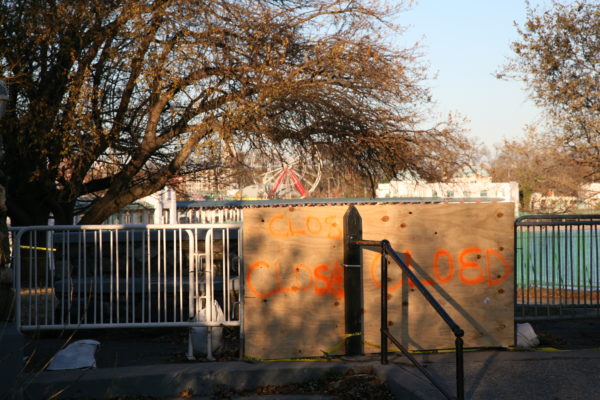
As businesses and residents tally their losses, placing a dollar figure on the damage wrought by Hurricane Sandy in Westchester County remains elusive.
One finite figure offered up by the county was $12 million for the damage sustained by Rye Playland where its boardwalk was destroyed.
Prior to Election Day, President Obama declared Westchester a federal disaster area, making it eligible for aid from the Federal Emergency Management Agency (FEMA). The declaration puts into motion long-term federal recovery programs, some of which are matched by state programs and designed to help disaster victims, businesses and public entities.
Donna Greene, a spokeswoman for County Executive Robert Astorino, recommended that businesses and residents register with FEMA as soon as possible and begin documenting any uninsured damage. Registering for assistance can be done at disasterassistance.gov.
According to FEMA”™s website, public assistance is aid to state or local governments to pay part of the costs of rebuilding a community”™s damaged infrastructure.
Generally, public assistance programs pay for 75 percent of the approved project costs. Public assistance may include debris removal, emergency protective measures and public services, repair of damaged public property, loans needed by communities for essential government functions and grants for public schools.
For residents, FEMA relief can include disaster housing, disaster grants and low-interest disaster loans.
In Greenburgh, Town Supervisor Paul Feiner said the damage was “significant,” though he couldn”™t put a dollar figure on it. Feiner said he has swamped with calls and was averaging an email every second.
“We are doing everything we can to help people cope with the disaster and hopefully get power restored quickly,” Feiner said.
The county and municipalities that produce their budgets in the fall could be facing a fiscal crunch when factoring in storm-related costs and the state”™s 2 percent tax cap on the tax levy.
Greene said she did not know how this would affect the county”™s budget deficit and upcoming budget process. Astorino has said that the county is facing an $86 million budget that could force him to lay off 800 employees.
Feiner said FEMA reimbursements should mean that this would not impact the tax cap.
Throughout the aftermath of Sandy, municipalities have extended hours on community centers and libraries to assist those without power.
The wake of a natural disaster sees opportunists looking to profit from the disaster. The attorney general”™s office has come out on the offensive against price gouging, saying it has received more than 400 complaints in the state since the storm.
“People have reported a box of matches going for $10,” spokeswoman Melissa Gray said. “Bread was selling for $7 a loaf at one place.”
Gray said if they receive a report on price gouging, they will contact the business and let them know that they are on notice.
“These are real investigations,” Gray said. “They take a while, but we would file a lawsuit or settle with the store. But just because people complain, doesn”™t mean it”™s not price gouging.”
Some stores might be raising prices to pay for employee”™s overtime or to hire extra workers.
“There may be a legitimate reason, but it will all be investigated,” Gray said.
New York state”™s Price Gouging Law prohibits merchants from taking unfair advantage of consumers by selling goods or services for an “unconscionably excessive price” during an “abnormal disruption of the market.”
The price gouging law covers New York state vendors, retailers and suppliers, including but not limited to supermarkets, gas stations, hardware stores, bodegas, delis, and taxi and delivery cab drivers.
Attorney General Eric Schneiderman urged New Yorkers to call his office at (800) 771-7755 to report a complaint.



















